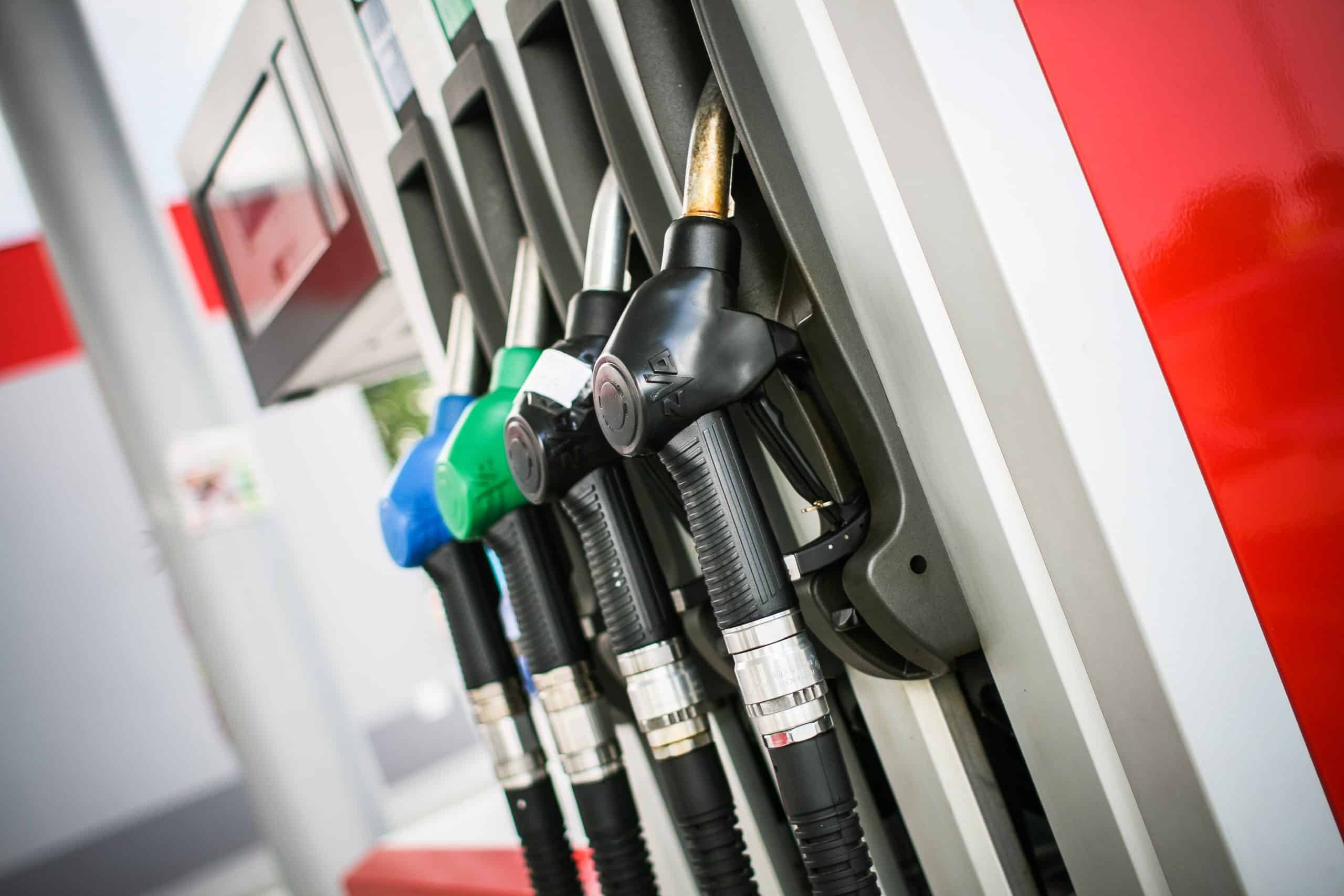Diesel vehicles were once favoured for their fuel efficiency and low running costs, but they have been hitting the headlines more recently for a very different reason. Government plans to phase out diesel vehicles, in line with a movement towards a fully electric future, has prompted some car manufacturers to introduce highly publicised diesel scrappage schemes and has left many of us wondering…is it still worth purchasing a diesel car?
The future of diesel cars started to look bleak back in 2015, when concerns were raised over the environmental impact of their potentially harmful NOx emissions. The Government plans to ban the sale of new petrol and diesel cards from 2040 in a bid to tackle air pollution, with a vision for purely electric or hybrid vehicles to be on the roads by 2050. In response, vehicle manufacturers have been rushing to offer diesel scrappage schemes with tempting deals on new models in exchange.
Figures released by the Society of Motor Manufacturers and Traders (SMMT) earlier this year revealed that diesel demand has declined by 31% between December 2016 and December 2017; which has had a significant effect on the UK new car market, causing it to decline for the first time in six years.
But things are perhaps not quite as bad for diesel as first thought.
Simon Benson, Director of Motoring Services at AA Cars, says: “Although new diesel car registrations have dropped since the announcement of the ban, this is more likely down to consumer confidence, concern over pollution and the prospect of restricted and costly access to cities. It is very unlikely that it will actually affect anyone buying a diesel car right now – unless they are planning to have the same car for the next 23 years.”
SMMT has even stated that diesel cars emit on average 20% lower CO2 than petrol equivalents, and that despite the negative reports about their emissions, diesel cars are not the main source of urban NOx. In fact, diesel hasn’t taken such a big knock as you might think, and despite the recent media coverage, thousands of motorists still choose diesel. The Department for Transport (DfT) states that the number of diesel cars licensed in Great Britain stood at 12.4 million at the end of 2017 and diesel vans are at a new high of 3.9 million units.
Steve Gooding, director of the RAC Foundation, said: “These latest figures show just how entrenched diesel cars are in our society. It also illustrates that even if the dramatic drop in sales of new diesel cars continues it will take several years before the size of the overall diesel fleet is significantly dented.”
Many drivers who cover more than 10-12,000 miles a year still consider a diesel car to be their best option.
Simon Benson, director of motoring services at AA Cars, says: “Diesel vehicles are still a viable option for a lot of drivers as they are often considerably cheaper to run than petrol cars thanks to their fuel efficiency. If you are a motorist who drives long distances frequently, a diesel car is still a sensible choice, and you’ll save on fuel costs.”
So, with diesels cars still in the running for the foreseeable future we’ve taken a look at three of the most popular diesel cars on sale today.
1 – BMW 3 Series Saloon

Image source: Carbuyer (27/04/2018)
The BMW 3 Series is considered a comfortable and efficient car that’s also great to drive. The 320d diesel can return up to 65.7mpg and is capable of 0-62mph in as little as 7.2 seconds. It especially appeals to company-car drivers and has emission-reducing AdBlue technology.
2 – Volkswagen Golf GTD hatchback

Image source: Carbuyer (27/04/2018)
This family hatchback blends the economy of a diesel engine with the sporting appeal of the petrol-powered GTI model. Much of its popularity is due to its decent fuel-economy figures, returning 64.2mpg on average, with CO2 emissions of 116g/km in three-door manual form.
3- MINI hatchback

Image source: Carbuyer (27/04/2018)
The MINI tends to hold its re-sale value well thanks to a desirable iconic image and appealing interior. The MINI hatchback offers three petrol and three diesel options. The diesel-powered MINI Cooper D is the most efficient model in the range, claiming an amazing 72.4mpg.
Interested in buying a diesel car? Here’s a few final things you may wish to consider before making your decision.
Cons:
- Cars fitted with a diesel particulate filter (DPF) can clog if you don’t often drive at motorway speeds, so if you are not a motorway driver then diesel is probably not for you.
- Diesel fuel typically costs slightly more than petrol (by 1p to 2p a litre).
- You’ll need to do around 10-12,000 miles a year to see any effect from diesel’s fuel economy, yet it’s thought that the average UK motorist travels less than 9,000 miles a year.
Pros:
- Diesel cars tend to have better fuel economy. Tests performed by Which? show that, on average, the efficiency of diesel cars could save you around £200 a year.
- Diesel models will almost certainly be cheaper to keep filled up, if you’re driving a significant number of miles per year.
- Diesels tend to rev lower, because they deliver their torque earlier in the rev range. This means a diesel is highly flexible even in higher gears – so you may not need to change down to overtake on a motorway.
- Many drivers love the mid-range flexibility and pulling power that a diesel car delivers.
- Diesels emit far less CO2 than petrol equivalents.
We hope you’ve found this article interesting and informative, and if you are still unsure about whether to purchase a diesel it’s probably a good idea to weigh up the pros and cons above and keep an eye on potential changes to Government legislation in the future.
Sources:
Crouch, H & Lake, E. (2018). What is the diesel scrappage scheme, what deals are manufacturers offering and will petrol and diesel cars be banned from 2040?. Available: https://www.thesun.co.uk/motors/3363548/diesel-scrappage-scheme-deals-petrol-diesel-cars-banned-2040/. Last accessed 27/04/2018.
Evans, C. (2017). Should I buy a diesel car? Everything you need to know. Available: https://www.whatcar.com/advice/buying/should-i-buy-a-diesel-car/. Last accessed 27/04/2018.
Kubiak, P. (2018). Diesel cars: do they still have mileage for drivers?.Available: http://www.yourmoney.com/household-bills/worth-buying-diesel-car/. Last accessed 27/04/2018.
Porter, A. (2018). Petrol vs Diesel Cars in 2018: Which is Better?.Available: https://www.which.co.uk/reviews/new-and-used-cars/article/petrol-vs-diesel-cars-which-is-better. Last accessed 27/04/2018.
Roberts, G. (2018). Record number of diesel cars now on Britain’s roads, says RAC Foundation. Available: https://www.fleetnews.co.uk/news/manufacturer-news/2018/04/16/diesel-cars-reach-record-number-in-britain. Last accessed 27/04/2018.
Sourced from wwwcarbuyer.co.uk. (2018). Best diesel cars. Available: http://www.carbuyer.co.uk/reviews/recommended/best-diesel-cars. Last accessed 27/04/2018.
Rosamond, C. (2017). Petrol or diesel: which fuel is the better choice for your next car?. Available: http://www.autoexpress.co.uk/car-news/95329/petrol-or-diesel-which-fuel-is-the-better-choice-for-your-next-car. Last accessed 27/04/2018.


